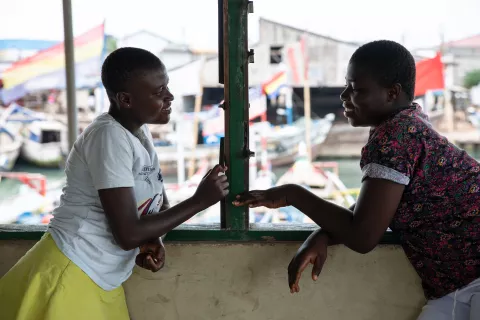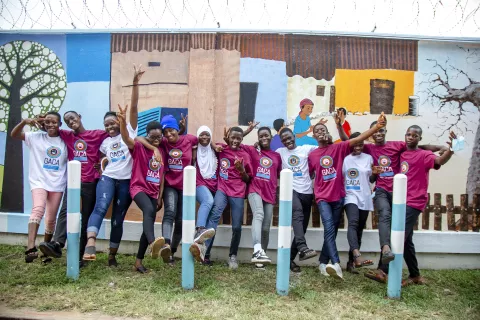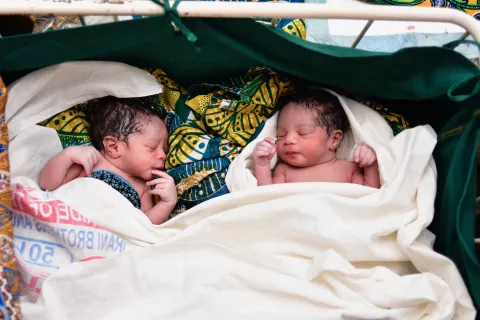Birth Registration in Ghana
A Bottleneck Analysis for Improved Coverage

Highlights
Globally, UNICEF supports universal birth registration within the context of an overall child protection system and as part of a civil registration system. This approach recognizes the link between non-registration of children and the risk of them being victims of abuse and exploitation. The aim of UNICEF is, therefore, free and universal registration of births, particularly of excluded groups. In 2010, UNICEF launched a re-focus on equity under the premise that equity-focused programming is not only a right in principle, but a right in practice. UNICEF works with Governments to strengthen their ability to support effective and efficient birth registration in their countries. It has been more than a decade since UNICEF Ghana started a partnership with the Births and Deaths Registry as part of efforts to improve birth registration coverage in the country.
Although some achievements have been made, there are still about 40 percent of children whose births go unregistered every year. Many of these children are found in rural and deprived communities. This puts them at risk of being cut off from social services and legal protection, which is crucial to their survival and future. The commitment to reduce disparities has been clearly articulated by the Government of Ghana. The Ghana shared Growth and Development Agenda (GDA) (2010–2013) acknowledges the existence of disparities – especially between the north and the south of Ghana – and outlines strategies for reducing these. UNICEF Ghana is committed to working with the Government of Ghana to register 90 percent of
children under five by 2016, hence the bottleneck analysis in 2012.





